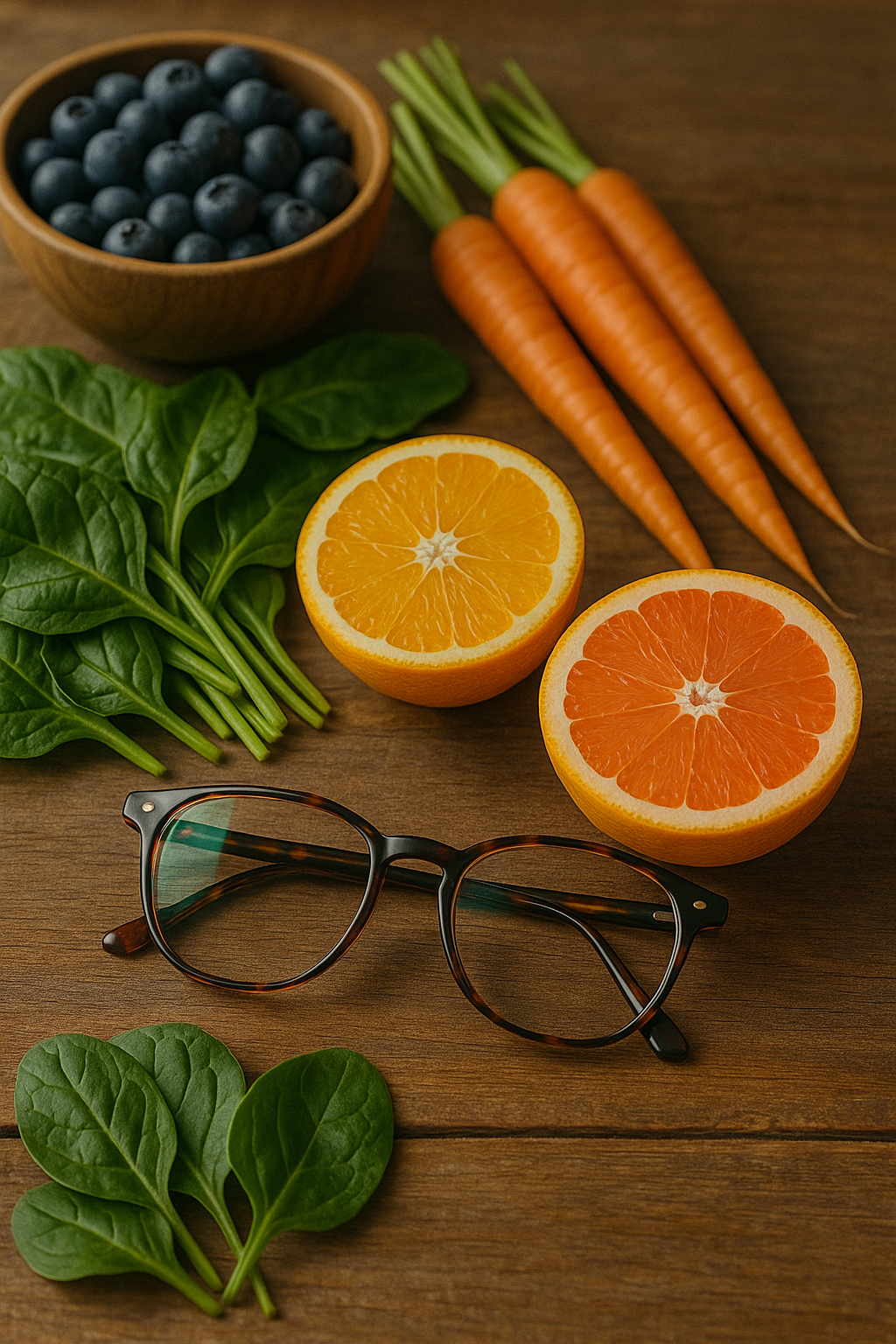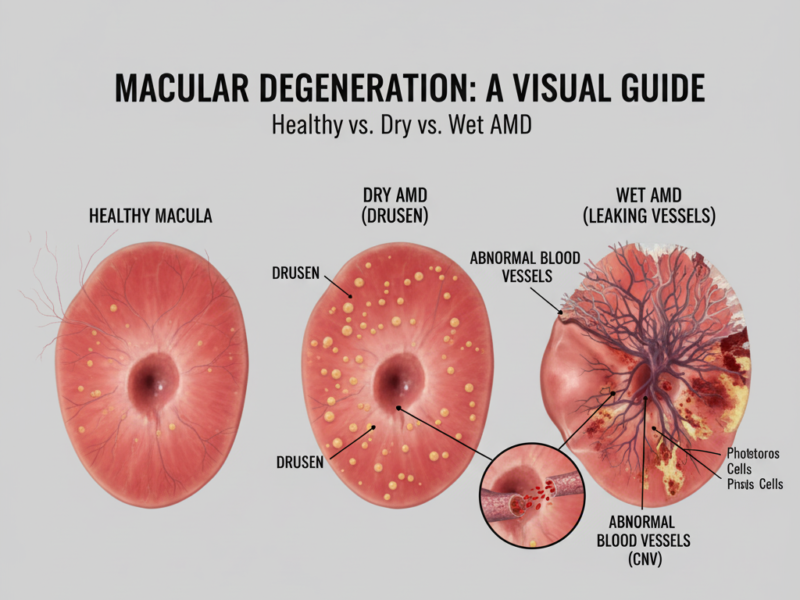Introduction
The quest for preserving long-term visual clarity begins not with advanced technology, but with what you consume, where a targeted strategy using Antioxidants and Eye Health is essential for maintaining sharp vision into old age.
Our eyes are exposed to constant stress — from blue light, UV rays, air pollution, and even internal metabolic processes. Over time, this exposure leads to the buildup of free radicals, unstable molecules that damage eye cells. This process, known as oxidative stress, is a major cause of age-related vision decline.
But there’s good news: antioxidants — nutrients found in colorful fruits, vegetables, and supplements — can help protect the eyes and even slow down aging.
In this guide, we’ll explore the science behind antioxidants, how they work, the best foods and supplements to include in your diet, and practical ways to keep your vision sharp for decades.
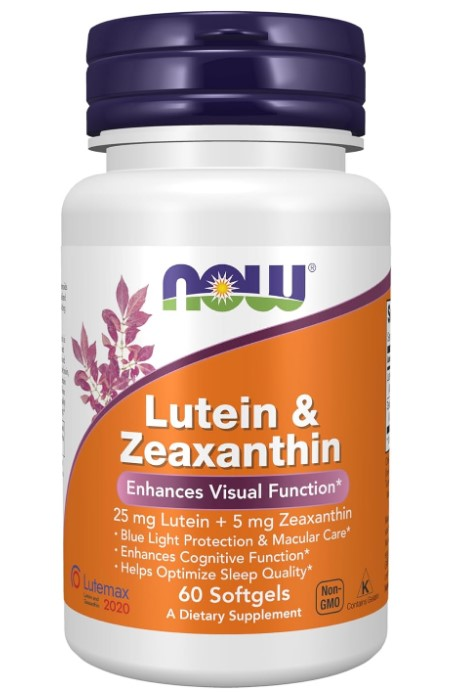
NOW Foods Lutein & Zeaxanthin
Supports macular health, blue light protection & visual performance.
- 25 mg Lutein + 5 mg Zeaxanthin
- Enhances visual function
- Helps with screen-related eye strain
1. What Are Antioxidants and How Do They Work?
Antioxidants are substances that neutralize free radicals before they damage cells. Free radicals are byproducts of normal metabolism but also increase with UV exposure, blue light, smoking, and poor diet.
Your body produces some antioxidants naturally, but you also need to get them through food and supplements.
Key antioxidant nutrients that benefit the eyes include:
- Vitamin C – Supports blood vessels in the eyes and protects against cataracts.
- Vitamin E – Protects retinal cells from oxidative damage.
- Beta-carotene (Vitamin A precursor) – Maintains corneal health and prevents night blindness.
- Lutein & Zeaxanthin – Found in the macula; they filter blue light and protect retinal cells.
- Zinc – Essential for transporting vitamin A from the liver to the retina.
- Omega-3 fatty acids – Reduce inflammation and support tear production.
2. Oxidative Stress and the Aging Eye
The eye’s lens and retina are highly susceptible to oxidative stress due to constant light exposure and high oxygen levels. Over time, free radicals damage proteins, lipids, and DNA in these tissues.
This oxidative stress contributes to:
- Macular Degeneration (AMD) – The leading cause of vision loss in adults over 50.
- Cataracts – Clouding of the lens caused by protein oxidation.
- Glaucoma – Damage to the optic nerve linked to oxidative stress and poor blood flow.
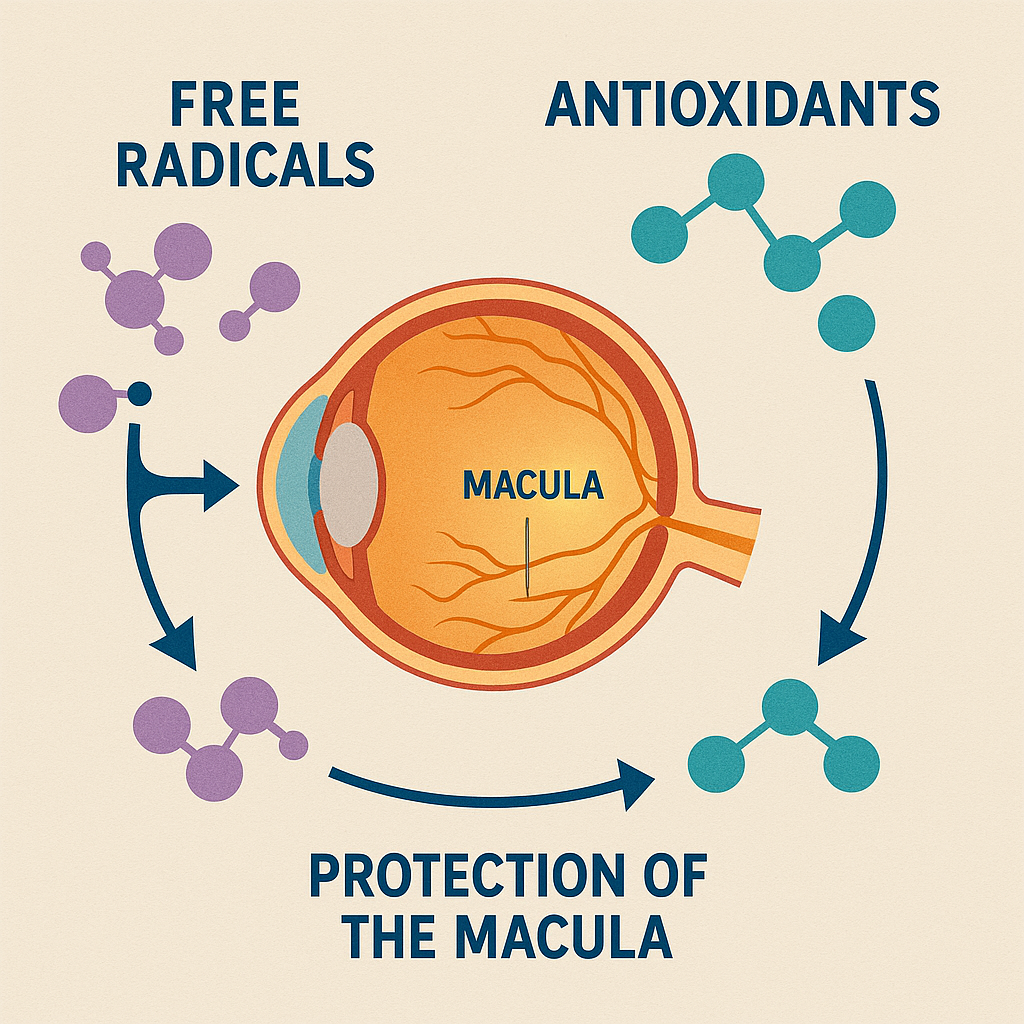
3. The AREDS and AREDS2 Studies: Scientific Proof
The AREDS (Age-Related Eye Disease Study) and AREDS2, conducted by the U.S. National Eye Institute, provided strong evidence that certain antioxidant supplements slow down the progression of AMD.
Original AREDS formula (2001):
- Vitamin C (500 mg)
- Vitamin E (400 IU)
- Beta-carotene (15 mg)
- Zinc (80 mg as zinc oxide)
- Copper (2 mg as cupric oxide)
Updated AREDS2 formula (2013):
- Added Lutein (10 mg) and Zeaxanthin (2 mg)
- Removed Beta-carotene (due to lung cancer risk in smokers)
- Retained vitamins C, E, zinc, and copper
👉 The AREDS2 formula remains the gold standard for eye health supplements in 2025.
4. Top Antioxidant Foods for Eye Health
Incorporating antioxidant-rich foods daily is one of the most effective ways to protect your vision naturally.
1. Leafy Greens
Spinach, kale, and collard greens are packed with lutein and zeaxanthin, the two carotenoids that form the yellow pigment in the macula.
2. Carrots and Sweet Potatoes
Rich in beta-carotene, which converts into vitamin A — essential for night vision and corneal health.
3. Berries
Blueberries, raspberries, and blackberries are full of anthocyanins, antioxidants that support retinal circulation.
4. Citrus Fruits
Oranges, lemons, and grapefruit are excellent sources of vitamin C, strengthening blood vessels and slowing cataract formation.
5. Nuts and Seeds
Almonds, walnuts, and sunflower seeds provide vitamin E and zinc, both vital for protecting retinal cells.
6. Fatty Fish
Salmon, mackerel, and sardines are rich in omega-3 fatty acids, which help prevent dry eyes and reduce inflammation.
5. Lifestyle Factors That Influence Antioxidant Levels
You can’t rely on diet alone — your daily habits also determine how effectively antioxidants protect your eyes.
- Quit Smoking: Smoking drastically depletes vitamin C and carotenoids.
- Wear Sunglasses: 100% UVA/UVB protection reduces oxidative stress.
- Get Enough Sleep: Cellular repair happens during rest.
- Limit Screen Time: Excessive blue light exposure accelerates free radical production.
- Exercise Regularly: Boosts circulation and delivers nutrients to eye tissues.
6. Supplements and Dosage Recommendations
If your diet isn’t perfect, supplements can fill the gap.
Recommended daily intake:
- Vitamin C – 500–1000 mg
- Vitamin E – 200–400 IU
- Lutein – 10–20 mg
- Zeaxanthin – 2–4 mg
- Zinc – 25–40 mg
- Omega-3s (EPA + DHA) – 1000–2000 mg
Note: Always consult your optometrist or doctor before starting supplements, especially if you take blood thinners or have chronic conditions.
Stop Oxidative Stress Today
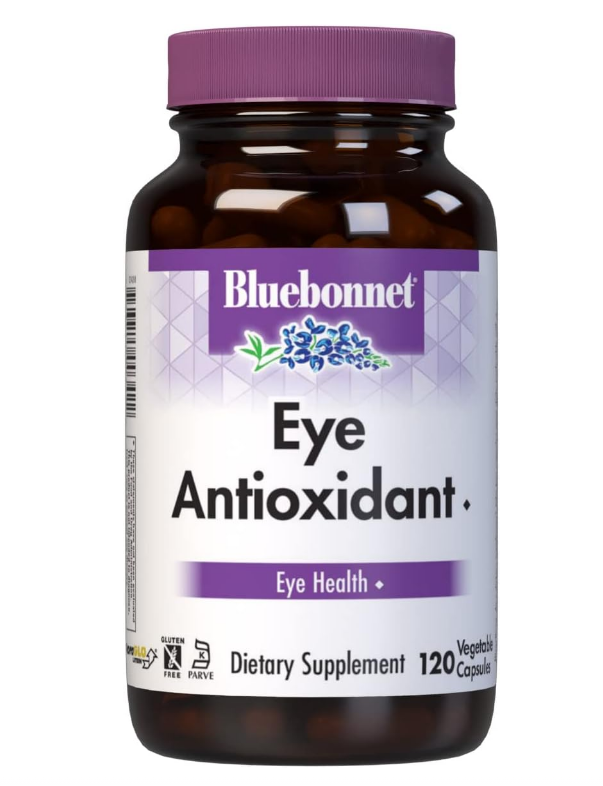
Boost your eye defense with clinically proven antioxidants. Protect your retina from environmental damage and aging.
- ✅ Neutralizes harmful free radicals
- ✅ Supports macular health
- ✅ Ideal for heavy screen users
See Top-Rated Antioxidants
7. Antioxidants and Disease Prevention
Macular Degeneration
Antioxidants reduce oxidative damage to photoreceptor cells, slowing disease progression.
Cataracts
Vitamin C, E, and lutein delay lens oxidation, maintaining lens clarity.
Glaucoma
Antioxidants like alpha-lipoic acid and CoQ10 support optic nerve health.
Diabetic Retinopathy
Resveratrol and anthocyanins improve microcirculation and reduce inflammation.

8. The Mind-Body Connection: Stress and Antioxidant Depletion
Chronic stress increases cortisol, which elevates oxidative stress in the retina. Practicing mindfulness, meditation, and deep breathing helps preserve both eye and brain health by improving blood flow and antioxidant activity.
The importance of supplementing with specific vitamins and minerals to protect the retina and slow the progression of Age-related Macular Degeneration (AMD) is strongly supported by clinical evidence. The foundational research is summarized by the National Eye Institute’s definitive findings on the AREDS and AREDS2 formula , which established the optimal combination of antioxidants for eye health.
9. FAQ Section
Q1: Can antioxidants restore lost vision?
No. They can’t reverse permanent damage but can slow down or prevent further deterioration.
Q2: What’s the best time to take antioxidant supplements?
With meals — fat-soluble vitamins (A, E, lutein, zeaxanthin) absorb better with healthy fats.
Q3: Are natural sources better than supplements?
Yes, because foods provide synergistic nutrients that work better together than isolated pills.
Q4: Is it possible to overdose on antioxidants?
Yes. Excessive supplementation, especially with Vitamin E or zinc, can have side effects. Always stay within recommended limits.
✅ Conclusion
Eye aging is inevitable — but the rate at which it happens is not. By embracing an antioxidant-rich diet, maintaining healthy habits, and protecting your eyes from environmental stress, you can preserve clear, vibrant vision well into old age.
Your plate is your first line of defense — fill it with color, and your eyes will thank you.

